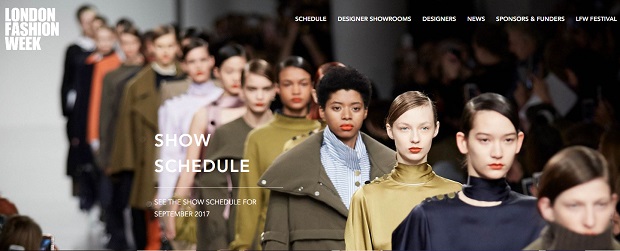Ahead of London Fashion Week, new research shows that premium fashion marketers working at designer labels such as Brit label Burberry are willing to pay far more for influencer posts compared to their fellow marketers in other sectors.
The study, from Rakuten Marketing has found that premium fashion marketers will pay up to £93,000 per post, revealing the prestige of influencer marketing in the fashion industry.
Despite this, respondents don’t feel they have the metrics to prove the real business value of influencer marketing. Only one in five say they understand influencers’ impact on sales.
Whilst the average amount UK marketers will pay for an Instagram post by a celebrity influencer is £60,000, the findings show premium fashion marketers will pay up to £93,000 per post, revealing the prestige of influencer marketing in the fashion industry.
For micro-influencers, who have up to 10,000 followers, the fees premium fashion marketers are prepared to pay amount to nearly £3000 for a Facebook post.
Over the next year, influencer marketing will occupy an average of 40% of premium fashion brands’ marketing budgets – for 87% this represents an increase in spending on the channel year-on-year. Despite this, respondents don’t feel they have the metrics to prove the real business value of influencer marketing. Only one in five say they understand influencers’ impact on sales.
As a result, just one quarter (25%) of premium fashion marketers attempt to illustrate the impact of marketing with directly driven sales as opposed to a 48% average across other industries. This view is not made clearer by the fact 30% of premium fashion marketers are using last click attribution reporting, with only 10% relying purely on first click.
Less than a quarter of mainstream fashion marketers believe that the influencers they work with are entirely concerned by measurement metrics like brand awareness, brand reach and site traffic generated and this rises to 56% among premium fashion marketers.
Within the influencer marketing channel, the areas premium fashion marketers appear to be most knowledgeable about is how fees are calculated; 44% of them say they understand how they’re calculated. Most (44%) premium fashion marketers are using a pay-per-post model and the same proportion admit that posts have increased 30-50% in cost since last year, with a further 19% of marketers seeing an increase of 70-80% in the prices of their posts.
Marketers report that they would be prepared to spend more on influencer marketing on the condition that return on investment becomes a little more tangible; 50% of premium fashion marketers want to see a transparent and reportable contribution to sales and 44% want to see the impact of influencer activity across the wider consumer purchasing journey.
James Collins, Rakuten Marketing’s SVP/managing director, global attribution, comments, “Influencers are famous at Fashion Week, attracting lots of attention from the media and across social. The collections they’re wearing are the items consumers want to buy now. However, fashion marketers have become dependent on these influencers without measuring their impact fully and many don’t have a proper understanding of what they help them to achieve from a sales perspective. Without an understanding of how influencers contribute to the consumer purchase journey, fashion marketers could be paying well over the odds or equally be undervaluing their influencer relationships. We need to ensure the bubble around influencer marketing doesn’t burst by putting proper measurement in place. Events like fashion week are a perfect opportunity to chart influence and show how important influencer marketing is in the marketing mix.”
Methodology
Rakuten Marketing conducted research with Morar Research in July 2017 among 200 marketers across the UK working directly on influencer programmes. The research categorised respondents by industry including Premium Fashion, Mainstream Fashion, Premium Beauty, Mainstream Beauty, Homewares, Other Retail, Electronics, Travel, FMCG.

